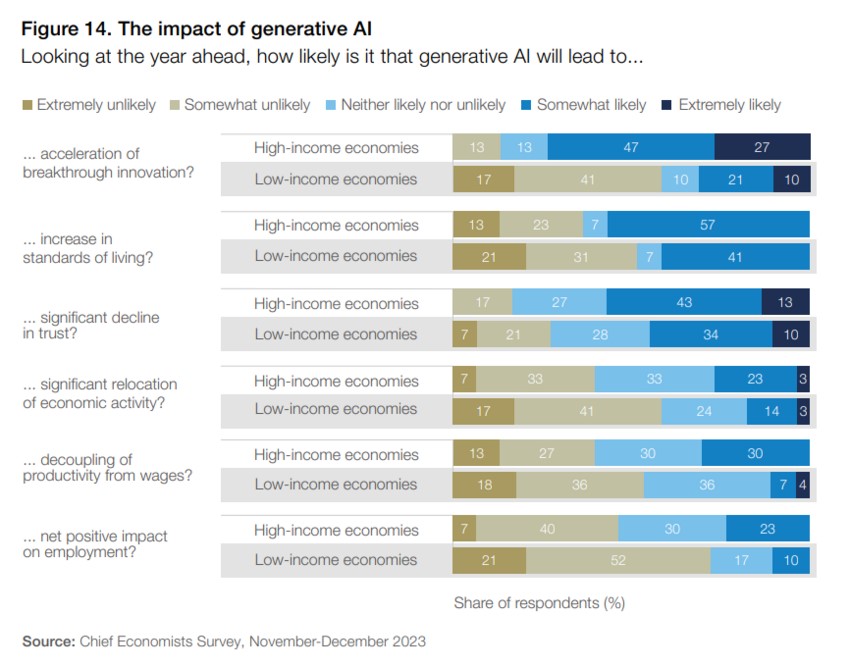
What are the trends that emerged during the recent World Economic Forum?

The latest World Economic Forum (WEF) has underscored the importance of upskilling and development in the wake of various trends that are expected to shake up the world of work, according to reports.
The WEF, citing multiple discussions during the Forum, reported that upskilling and development will be "key in the coming years to ensure an equitable future of work."
It comes as the workplace continues to deal with changing trends that are predicted during the discussions held throughout the forum.
Among these trends are the continued growth of generative AI, which chief economists predicted will benefit high-income countries, according to the WEF report, citing chief economists.
Generative AI is expected to boost knowledge-heavy industries - amid concerns that its continued growth will impact job opportunities.
Previous research has already predicted that AI will likely put nearly 40% of jobs worldwide at risk. But there has been research that the elimination of jobs would later be offset by the creation of new ones due to technological innovations.

These new jobs born out of innovation will also put employees' skills into focus, which is another expected trend according to the WEF.
Discussions during the Forum also pointed out that employees also risk losing their jobs to people who know how to use AI, underscoring the importance of upskilling to catch up with latest trends.
Meanwhile, the WEF also reported on various trends that the world of work will likely see further this year, especially amid predictions of global unemployment going up to 5.2% in 2024.
According to the report, more women are expected to enter the workforce as more efforts are initiated to improve childcare across organisations.
“There are 606 million women of working age in the world who are not working because of their unpaid care responsibilities, compared to 40 million men," Reshma Saujani, Founder and CEO of Moms First, explained in a session on the ‘Workforce Behind the Workforce’.
“Childcare pays for itself. When you offer childcare to employees, you get higher worker productivity and lower rates of attrition, and greater rates of retention. We have to look at care as an economic issue that world leaders must actually do something about.”
Digital jobs are also expected to go up, which experts said could help utilise talent around the world if managed well.
The demand for hybrid work will also give rise to more pop-up offices, which can satisfy employees' desire for human interaction while remaining close to where they live, according to the report.
This trend comes as the push for office return is expected to stabilise this year, despite moves from major employers to implement stringent on-site return policies.